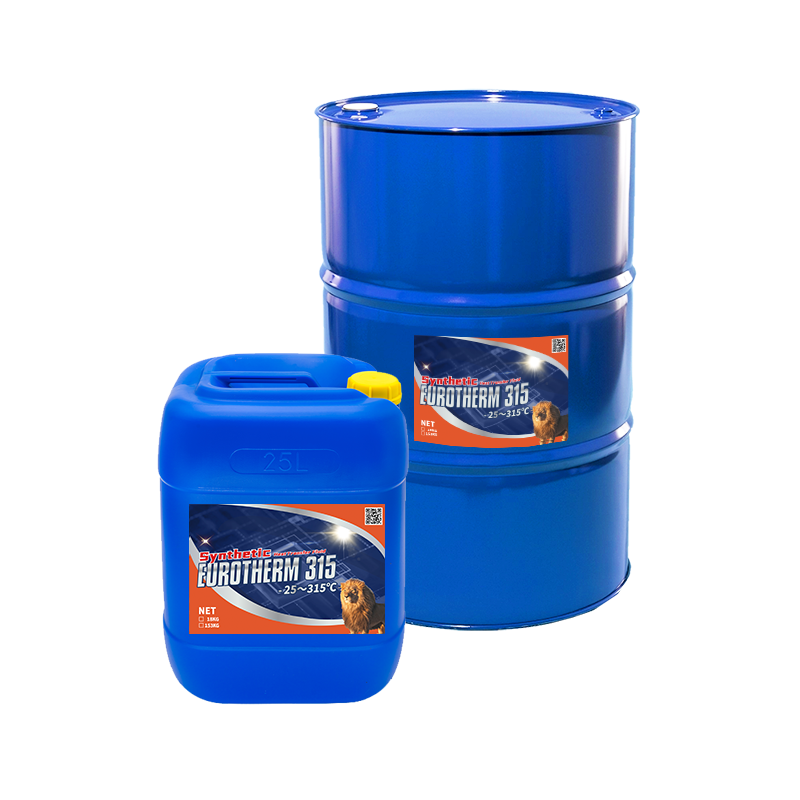Why Routine Upkeep of Heat Transfer Fluid is Essential for System Durability
Why Routine Upkeep of Heat Transfer Fluid is Essential for System Durability
Blog Article
Why Heat Transfer Fluid Is Essential for Optimizing Power Transfer in Systems
The duty of warmth transfer liquids in optimizing energy transfer is critical for accomplishing efficient thermal monitoring across different commercial fields. These fluids promote seamless warmth exchange, making certain procedures run within ideal temperature level varieties and alleviating the danger of getting too hot.

Duty in Thermal Administration
Heat transfer liquids play a vital role in thermal administration by successfully managing temperature levels in numerous commercial processes and systems. These specialized liquids assist in the transfer of heat in between various parts, guaranteeing optimum operating conditions and stopping getting too hot. By preserving specific temperature level control, warm transfer liquids make it possible for industries such as chemical manufacturing, oil and gas, and power generation to run safely and effectively.
The choice of a suitable warmth transfer liquid depends on several elements, including thermal security, warmth capability, and thickness. High thermal security makes certain that the liquid can endure severe temperatures without weakening, while a high warm capability allows it to take in and launch substantial quantities of warm - heat transfer fluid. Low thickness reduces the power required for pumping, adding to general system efficiency
Furthermore, warm transfer liquids are integral in applications like refrigeration, where they assist soak up and dissipate warmth throughout the cooling cycle. In solar thermal energy systems, these liquids capture and transport solar warm to produce electrical power or give warm water. Their adaptability to diverse operating conditions and capability to keep regular thermal performance underscore their value in commercial thermal management, helping with functional connection and improving security actions.

Enhancing System Efficiency
To make best use of the benefits of thermal administration, enhancing system effectiveness through the strategic usage of warm transfer fluids is critical. By maintaining ideal temperature levels, warmth transfer liquids aid ensure that systems run within their made parameters, thereby protecting against overheating and minimizing the threat of part failure.

Kinds of Heat Transfer Fluids
The variety of warmth transfer fluids emphasizes their crucial duty in a variety of commercial applications, each tailored to fulfill details thermal management requirements. These liquids facilitate effective energy transfer and are selected based upon essential buildings such as thermal stability, viscosity, and warmth capacity. The primary types include water, glycol remedies, oils, and synthetics, each offering unique benefits.
Water is the most usual warmth transfer medium due to its high specific heat capability and reduced expense. Mineral oils are preferred for their thermal stability and non-corrosive nature, making them appropriate for high-temperature applications.

Artificial fluids, consisting of silicone and fragrant compounds, give remarkable thermal stability and are made use of in atmospheres requiring severe temperature level varieties. These liquids make certain remarkable performance in systems where standard fluids may stop click here to find out more working. The selection of a warm transfer fluid is important, as it influences system performance, security, and long life. Each kind must be selected to align with the operational demands and the details problems of the application it offers.
Environmental and Economic Benefits
Making use of the ideal warmth transfer liquids provides substantial ecological and you can check here financial advantages for commercial procedures. Ecologically pleasant heat transfer fluids, frequently eco-friendly and safe, reduce the threat of soil and water contamination in the occasion of leakages or spills, thus safeguarding communities and complying with rigorous environmental guidelines.
Financially, the ideal warm transfer fluid can dramatically reduce functional expenses. Liquids with extended lifecycle performance lower the frequency of replacements and maintenance, lowering downtime and associated costs. In general, the calculated use of optimum heat transfer liquids sustains lasting economic development and environmental stewardship.
Choosing the Right Liquid
How does one browse the complicated procedure of picking the appropriate warmth transfer fluid for industrial applications? Thermal stability makes sure the fluid can stand up to high temperature levels without degrading, while compatibility avoids rust or other damaging responses with system elements.
Additionally, the fluid's heat capability and thickness are paramount. A high warmth capacity allows the fluid to soak up and move more power, improving performance. Optimum viscosity ensures minimal next page pump job and effective warmth transfer, particularly in differing temperatures. Environmental and safety facets should also be component of the decision-making process. Non-toxic, eco-friendly liquids reduce environmental influence and abide by governing standards, decreasing responsibility dangers.
Final Thought
The strategic selection and application of heat transfer fluids are fundamental to optimizing power transfer throughout numerous systems. By guaranteeing high thermal security and ability, these liquids provide exact temperature control and boost total system performance. This optimization contributes to decreased operational expenses and lower greenhouse gas emissions, thus advertising sustainability. The option of fluid, tailored to certain viscosity and operational demands, is essential for taking full advantage of performance and attaining economic and ecological benefits in commercial processes.
Report this page